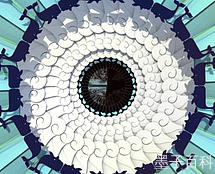Scientists who made significant contributions to China’s “Two Bomb, One Satellite” project were instrumental in advancing both nuclear weapons and space technology. Their achievements have had a profound impact on China’s defense capabilities and its reputation as a global innovation leader.
Li Pengcheng: As a key figure in China’s nuclear energy program, Li Pengcheng played a crucial role in the development of atomic and hydrogen bombs. He spearheaded the research and development of weapons-grade uranium and successfully led the first nuclear test in 1964.
Qian Xuesen: Qian Xuesen, known as the “Father of Chinese Rocketry,” was responsible for pioneering China’s missile and space exploration programs. He played a crucial role in the development of China’s first satellite and was instrumental in launching the Dongfanghong series of satellites.
Xu Guangxian: Xu Guangxian, a renowned chemist, made significant contributions to the nuclear weapons program by developing key materials, such as high-density explosives and fuel for nuclear reactors. His research paved the way for the successful detonation of China’s first hydrogen bomb.
Zhou Guangzhao: Zhou Guangzhao was a prominent astrophysicist who made significant contributions to China’s space program. He was instrumental in the successful launch of China’s first satellite and played a crucial role in advancing China’s space science research and technology.
Fang Lizhi: Fang Lizhi, a prominent physicist, played a key role in China’s nuclear weapons program. His expertise in nuclear physics contributed to the development of China’s atomic and hydrogen bombs. His research also helped improve the efficiency and safety of China’s nuclear reactors.
These scientific pioneers not only made groundbreaking discoveries but also contributed to the education and development of future generations of scientists. Their achievements continue to shape China’s scientific landscape and inspire advancements in various fields of study.














